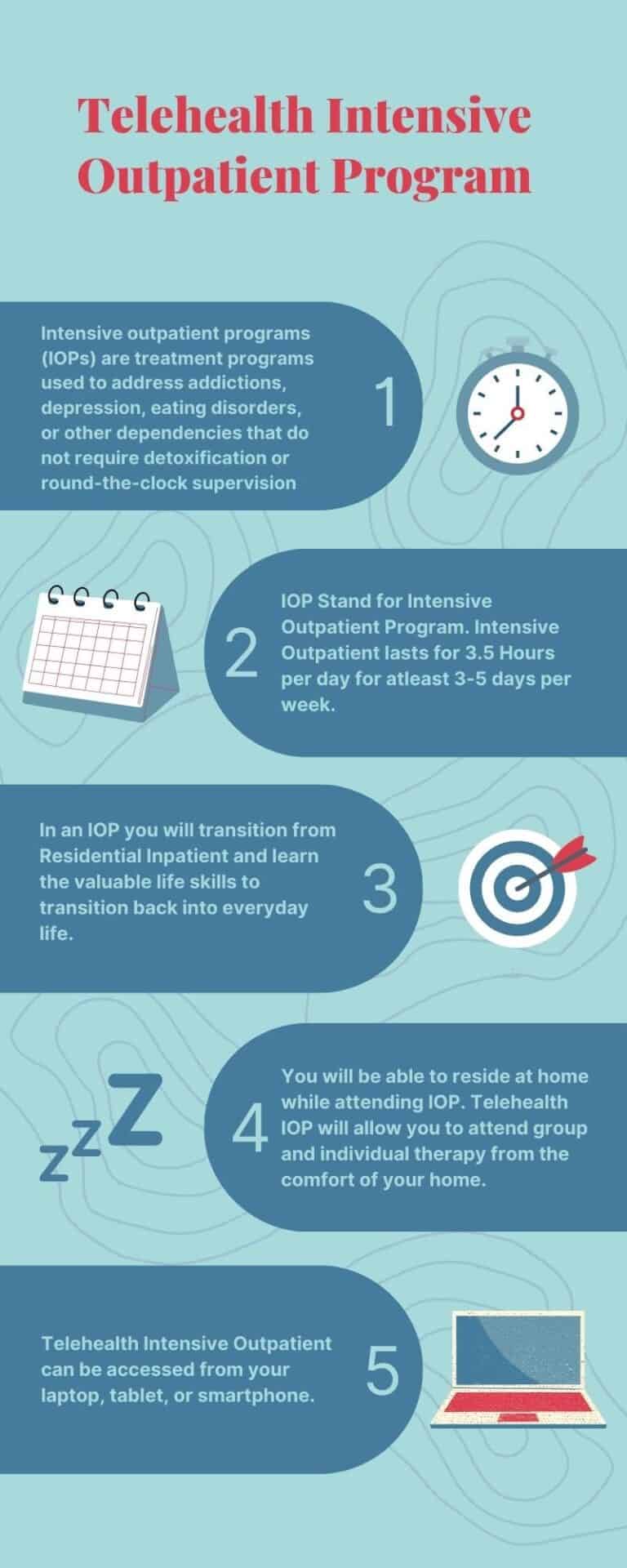The Benefits of Intensive Outpatient Program (IOP) for Long-Term Health.
The Benefits of Intensive Outpatient Program (IOP) for Long-Term Health.
Blog Article
The Influence of Holistic Therapies on Mind-Body Recovery in an Intensive Outpatient Program
In the realm of intensive outpatient programs, the incorporation of all natural therapies has triggered substantial rate of interest and dispute among experts in the area of mental wellness and wellness. The potential synergy in between standard restorative modalities and all natural practices in promoting holistic wellness continues to be a subject ripe for exploration and analysis.
Integrating Holistic Therapies in IOP
Including all natural treatments right into Intensive Outpatient Programs (IOP) can improve the general health and treatment outcomes of individuals seeking psychological wellness support. All natural therapies concentrate on dealing with the entire person, dealing with not just the signs however also the underlying root causes of mental health concerns. By integrating methods such as yoga exercise, reflection, art therapy, and acupuncture right into IOP setups, individuals can experience a much more thorough method to their therapy.

Benefits of Yoga and Reflection
By infusing IOP setups with all natural treatments like yoga exercise and meditation, people can access an array of benefits that add to their mental and psychological well-being. Additionally, yoga exercise boosts self-awareness and fosters a sense of internal peace, which can be particularly advantageous for individuals going through extensive outpatient therapy.

Acupuncture for Mind-Body Healing
Acupuncture, a traditional Chinese medication practice including the insertion of thin needles right into particular points on the body, supplies a special strategy to mind-body recovery by targeting energy circulation and advertising holistic wellness. This old strategy is based upon the idea of Qi, the body's important power, moving along meridians or paths. By stimulating certain acupoints, acupuncturists aim to restore the balance of Qi, which is thought to be necessary for overall health and wellness and well-being.
In the context of mind-body healing, acupuncture has revealed appealing results in reducing stress, anxiousness, and clinical depression by controling the body's physiological feedback to these problems. Research study recommends that acupuncture can assist launch endorphins, the body's natural pain relievers, and manage neurotransmitters to enhance state of mind and emotional wellness. In addition, acupuncture sessions are often gone along with by a sense of relaxation and calmness, which can contribute to a much more Click This Link well balanced mental state.
Additionally, acupuncture is significantly being integrated into Western medicine practices to complement traditional therapies for numerous psychological health and wellness problems, supplying a holistic approach that thinks about the interconnectedness of the body and mind in promoting healing and wellness. Intensive Outpatient Program (IOP).
Mindfulness Techniques in Therapy
Expanding on the realm of all natural treatments, mindfulness techniques play a crucial duty in therapy by promoting a much deeper connection in between the body and mind for general health. Mindfulness, rooted in old reflective practices, includes focusing on the present minute non-judgmentally. In the context of an intensive outpatient program, incorporating mindfulness methods can help individuals create self-awareness, regulate feelings, and reduce tension degrees. With mindfulness reflection, people can cultivate a heightened sense of recognition of their thoughts, sensations, and physical experiences, advertising a higher understanding of the interconnectedness in between physical and mental health.
By motivating people to observe their thoughts without add-on or judgment, mindfulness fosters a sense of approval and empathy in the direction special info of oneself. Ultimately, incorporating mindfulness methods into therapy plans can encourage people to actively get involved in their recovery journey and advertise all natural wellness.

Reviewing Holistic Interventions' Efficacy

Qualitative assessments, on the various other hand, include gathering subjective comments from individuals regarding their experiences with holistic treatments. This qualitative information can offer useful understandings right into the regarded advantages of these therapies on people' general health, high quality of life, and coping mechanisms. By integrating quantitative data with qualitative responses, researchers can obtain a much more alternative understanding of the efficiency of these treatments in promoting mind-body healing within an intensive outpatient program. Such analyses are important for notifying evidence-based techniques and maximizing holistic therapy techniques for individuals seeking thorough health.
Verdict
To conclude, the integration of alternative therapies such as yoga, reflection, acupuncture, and mindfulness strategies in an intensive outpatient program can have a substantial anonymous influence on mind-body healing. These therapies supply an even more thorough strategy to therapy by dealing with the physical, psychological, and spiritual aspects of a person's wellness - Intensive Outpatient Program (IOP). Evaluating the efficacy of these all natural interventions is critical in understanding their prospective benefits in improving the general healing procedure for people in an outpatient setting
Report this page